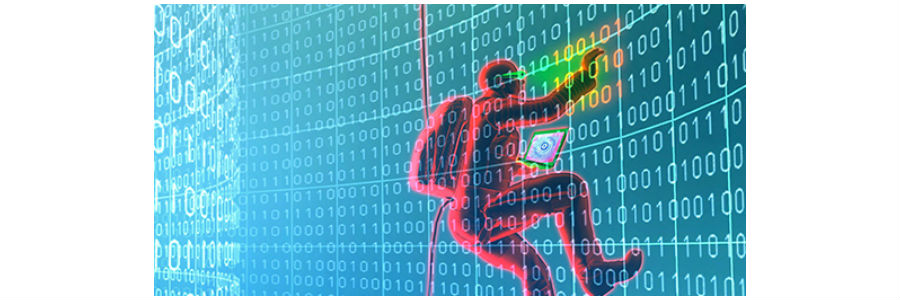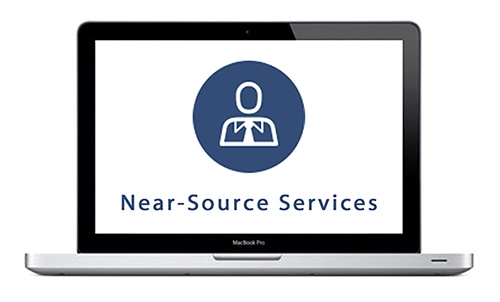When it comes to the online security of their business, many SMB owners consider it an afterthought. They think their business is too small to be of any concern to cyber criminals, and there’s good reason for this mentality. How often are security breaches to SMBs listed in the news? Rarely.
This small business was hacked. Are you next?
Chimera ransomware: what to know

You are probably already familiar with ransomware, one of the nastier forms of malicious software that does the rounds every now and again, but what you may not already be acquainted with is a ransomware program called Chimera. Only recently discovered, Chimera’s creators have taken the already unpleasant ransomware program’s scare tactics to the next level.
Twitter’s cyber attack warnings
How Google protects users with safe browsing
Cryptowall 3.0 reported to cost victims $325 million

A new report analyzed Cryptowall 3.0 ransomware attacks and found that it may have cost victims $325 million and that money may be going to a single source.
Kevin Haley, a director for Symantec Security Response, said that Symantec strongly recommends against paying, but admits that not paying could cause "irreparable damage.
Small and Medium-Sized Businesses Make Big Targets for Cyber-Attacks
Security experts are discovering an emerging trend in cyber-crime these days as more and more SMBs become attractive targets for cyber-thieves because of their inadequate security measures. Reports have shown that cyber-criminals can siphon off as much as $70 million worth of accumulated resources. There is a misconception among many SMBs that they are small targets for would-be cyber-attacks. “We’re too small a company to be of any worth” is the mindset of many. However, there is an ongoing trend in which smaller companies actually find themselves victims of the most elaborate and vicious cyber-attacks. Why? Security experts are discovering that SMBs tend to have less or inferior security protocols in place to counter cyber-attacks. While this was of little consequence in the past, cyber criminals are now starting to take notice of the fact, and are exploiting it to their advantage. And it’s profitable too – an attack on one SMB might not amount to as much as a larger organization, but given the greater ease through which hackers can attack smaller businesses, they more than make up for the difference in the volume of companies they target. According to several news reports, these cyber-thieves can make off with as much as $70 million. The more unfortunate fact is that smaller companies are less able to counteract the effects of losses from cyber-attacks. This is why you should stay one step ahead of cyber-thieves by updating your security systems. Short term or long term, it’s a practical solution to keep information and data safe, and your operations stable. Give us a call today – we can help.
7 Simple Ways To Keep Your iPad Secure
Don’t leave it lying around Although this is common sense, you’ve probably violated this rule more than once. iPads are easy targets for thieves, so don’t let it out of your sight when in a public place – and don’t leave it in plain view in your car or you might end up with a broken window in addition to a stolen iPad. Use a passcode Although it’s not 100% hacker-proof, it will block unauthorized users from accessing your information. Consider enabling automatic data erasing You can configure your iPad to erase your data after 10 failed passcode attempts. Clearly this is not a good solution for anyone who constantly forgets a password or those who have kids who might try to endlessly log in to use your iPad. Sign up for MobileMe As mentioned opposite, this software will allow you to locate a lost iPad and, if it’s not recoverable, you can remotely wipe the device of your private information. Limit its capabilities You can set your iPad to restrict certain functions such as access to Safari, YouTube, installing applications and explicit media content using a passcode. In the corporate world, an IT administrator could set these restrictions for company owned devices. At home, you can use this to restrict what your children can do with your iPad. Install software updates As with all software, make sure you have the latest security updates and patches installed to protect against hackers and viruses. Only connect to trusted WiFi networks Public WiFis are open territory for hackers and identity thieves. Whenever you connect, make sure it’s a legitimate, secure connection.
The Dangers of Public Wi-Fi
The convenience and practicality of using public Wi-Fi hotspots is undeniable, but it can also be a problem should hackers decide to exploit network loopholes and gain access to the people connected to it. It’s important to have the proper protection to keep your system safe. These days, Wi-Fi is everywhere. Airports, coffee shops, train and bus stations, malls – almost every public place you can think offers Wi-Fi connectivity. Being connected to the internet has evolved from luxury to necessity, and whether it’s for personal or business reasons people are online as much as possible. This is all well and good, except when you consider that hackers have started to extend their playing field to public Wi-Fi networks. With the volume of sensitive information such as passwords and financial transactions, it’s inevitable that crooks and fraudsters move to public networks where there is more potential to illegally farm large chunks of information. Two things are important about this emerging trend. First, it’s the very nature of public networks that makes them vulnerable to attack. Second, hacking has become much easier these days, with very simple hacking programs such as Firesheep easily downloadable from the web. However, the solution is simple as well: have the proper security protocols on your smartphone or laptop. It’s unfortunate that many people neglect to recognize the importance of such policies, and only have minimal security (if any at all) to guard against attacks. But as long as you have the proper protocols in place, you can stay connected – even through public Wi-Fi – without fear of hacking or any sort of intrusion into your system. If you want to know more about keeping your portable devices safe from attacks, please feel free to contact us. We’ll be glad to explain the issue in more detail and draw up a solution customized to fit your needs.
Epsilon Sets the Bar for What NOT to Do in Online Security
Many IT service providers are learning valuable lessons from the Epsilon incident – which saw one of the world’s biggest email service providers become a victim of cyber-criminals, compromising a substantial amount of information entrusted to them by their clients. There’s been a lot of buzz recently about Epsilon, one of the biggest email service providers in the world, as it suffers from the backlash of allowing itself to be a victim of phishing efforts – which has affected the business data of as many as 50 major companies who are clients of theirs. Reports are also citing Epsilon’s failure to heed an alert from a business partner which advised the provider to be on its toes against potential attacks from cyber-criminals targeted towards email service providers. The damage estimates vary, with Epsilon citing only about 2% of their data being stolen, but the impact is undeniable. Cyber-criminals now have access to a sizable number of personal data stored through Epsilon – passwords, account numbers, and even the purchasing / buying habits of the customers of Epsilonงs clients. Many of Epsilon’s clients are now sending out messages to their own customers, warning them that their email addresses may have been compromised. It’s a lesson to companies, big and small, to pay more attention to beefing up their security protocols, since all it takes is one breach to endanger all of your data. In addition to having the right security software, it also helps if you require your employees undergo proper user training to make sure that they won’t be easily baited by scams like phishing, and will be more aware of how to contribute to the safety of your business data. Failing to do so puts not only your company, but also your clients, at risk. If you’d like to make sure your systems are safe, call us and we’ll evaluate your current security measures and suggest ways to make critical improvements.
HR Managers Must Think About Data Security, Too
Employees have access to a wide variety of electronic information, from the moderately important (such as email lists) to the critical (such as financial records and trade secrets). Upon their departure, HR managers should work with IT to ensure that employee account access is blocked. Remember the days when employees kept important information in paper files? They are long gone. According to a study conducted by the University of California at Berkeley, almost all of today’s new information is stored electronically. And that could mean trouble for your company when an employee resigns — because electronic documents are both easy to copy, and portable. That makes them more prone to theft than paper documents. Case in point: In August 2009, DuPont filed a lawsuit against a research scientist who allegedly stole more than 600 files by copying them to a portable hard drive. And that wasn’t an isolated incident; another DuPont research scientist was sentenced to an 18 month prison term for stealing proprietary information worth $400 million. Think employee data theft doesn’t apply to your type of business? Think again. A 2009 study conducted by the Ponemon Institute found that data theft is rampant in the business world. According to the study, 59 percent of employees who quit or are fired take confidential business information with them. And when the employee works in IT, the access to confidential data is even greater. A 2008 study by Cyber-Ark Software found that almost 90 percent of IT employees would take sensitive company data with them if they were laid off. The lesson: When employees leave, you must take steps to protect the electronic information they have access to. This may include customer information, financial records, trade secrets, intellectual property, and email lists, to name just a few items. We recommend that when an employee leaves, you prevent his or her account access, set the account for immediate review, save any necessary files (which may involve consulting with other departments for verification of documents), then delete the account. In addition to protecting data, this will also optimize server space and open up more storage space for the company. While some employees might argue that they need access to their personal files before departing, and you may grant such access (supervised, on a case-by-case basis), it is not required; any of the information that is located on a company computer is company property. In a sensitive situation it’s always good to let us know ahead of time so we can help you prepare for a well-managed and secure transition.




